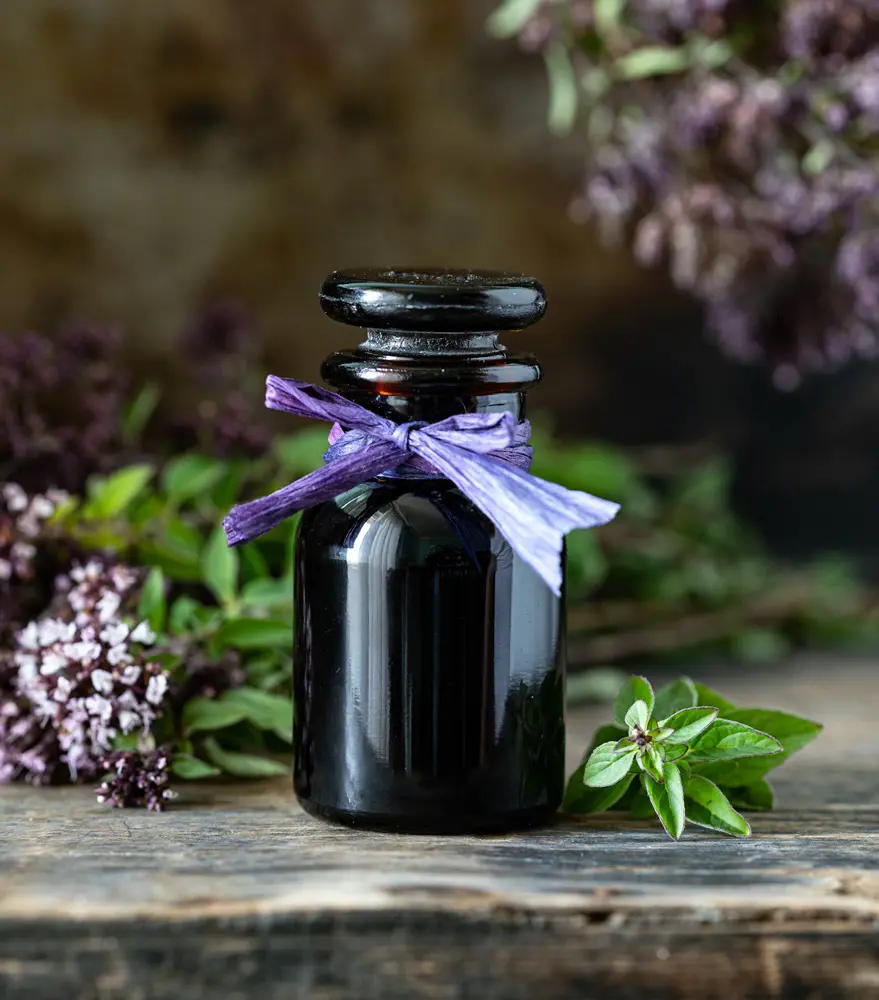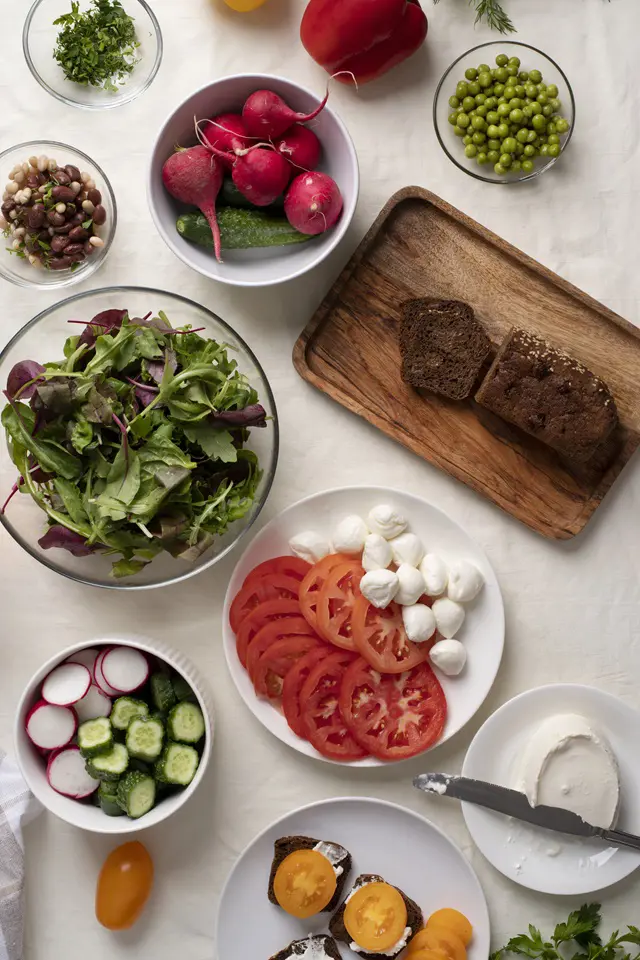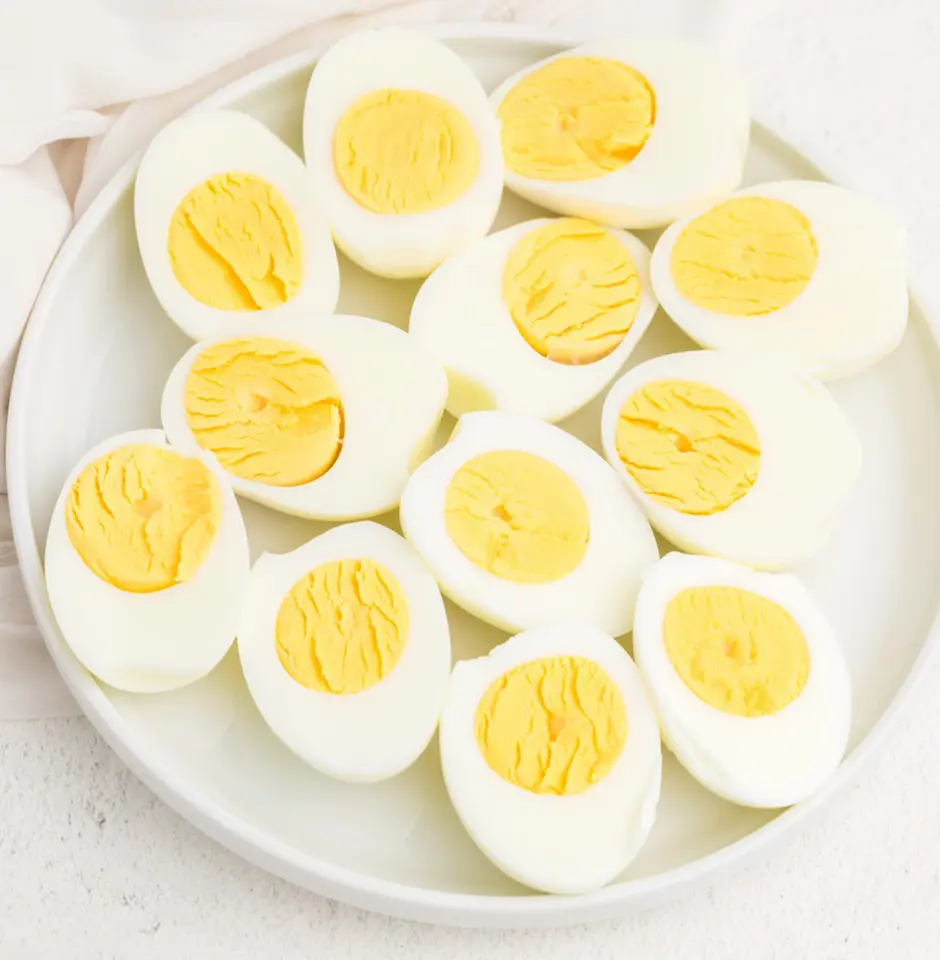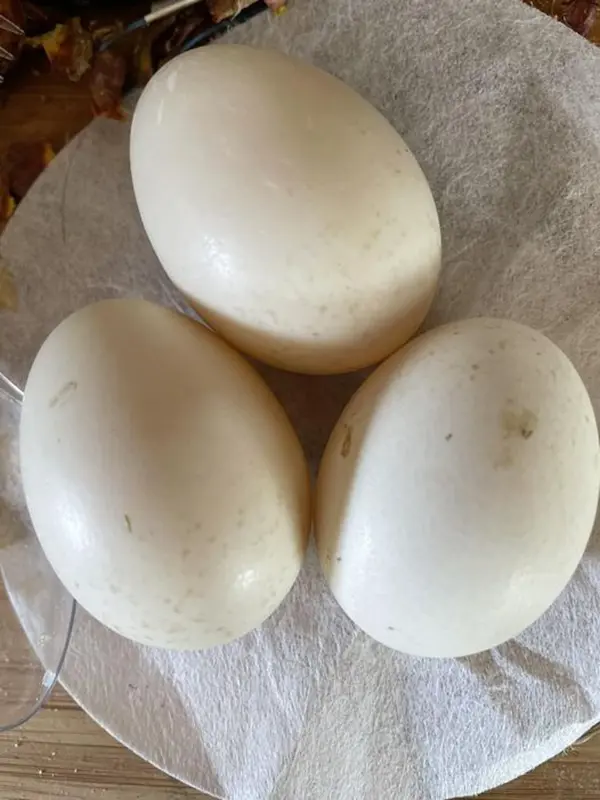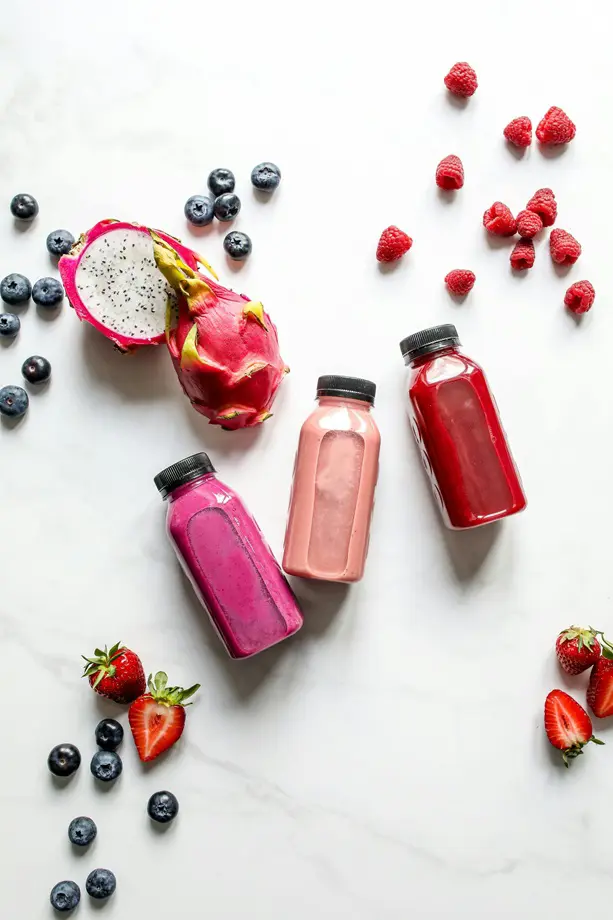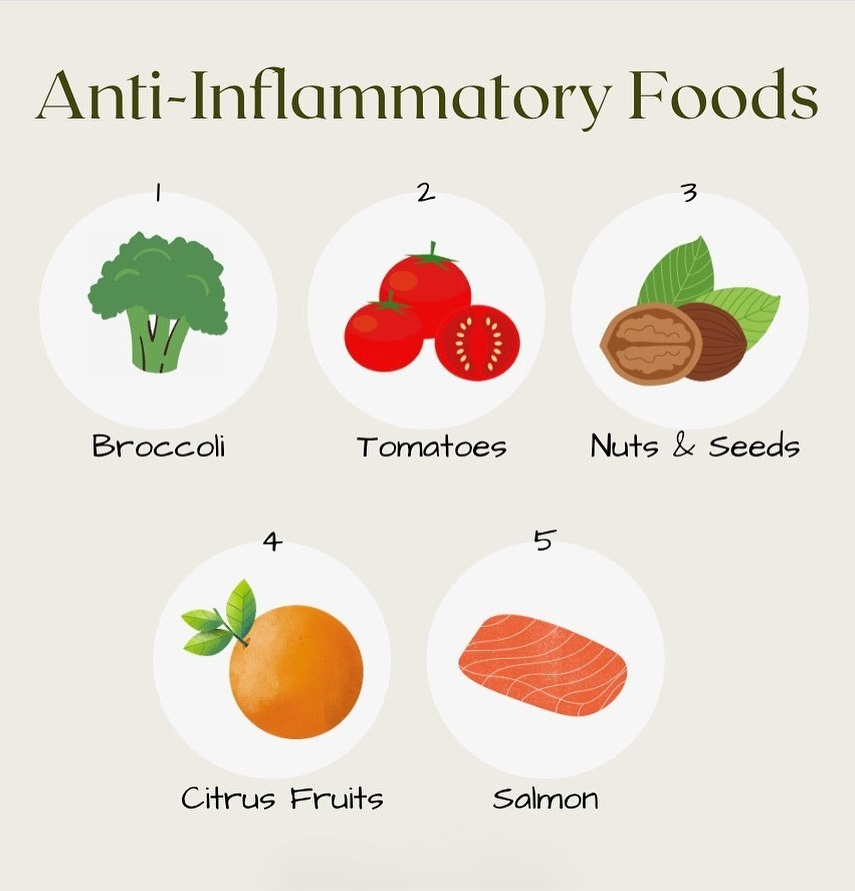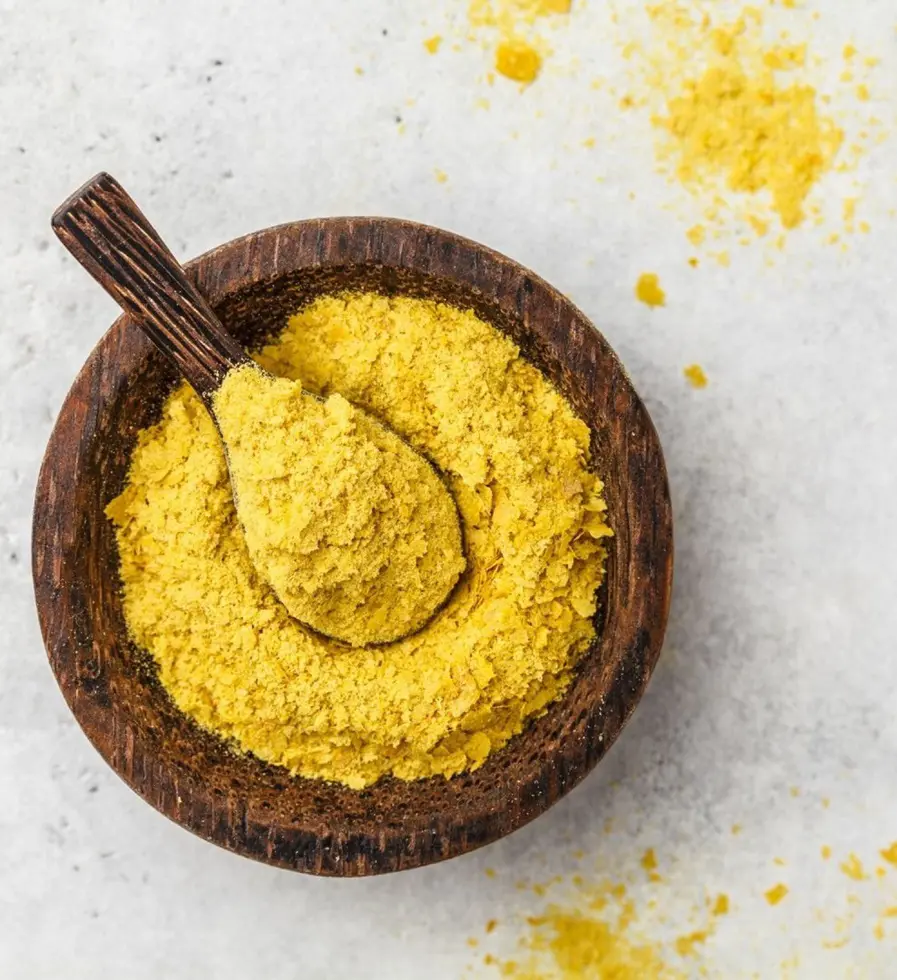20 Niacin Rich Foods And Its Health Benefits
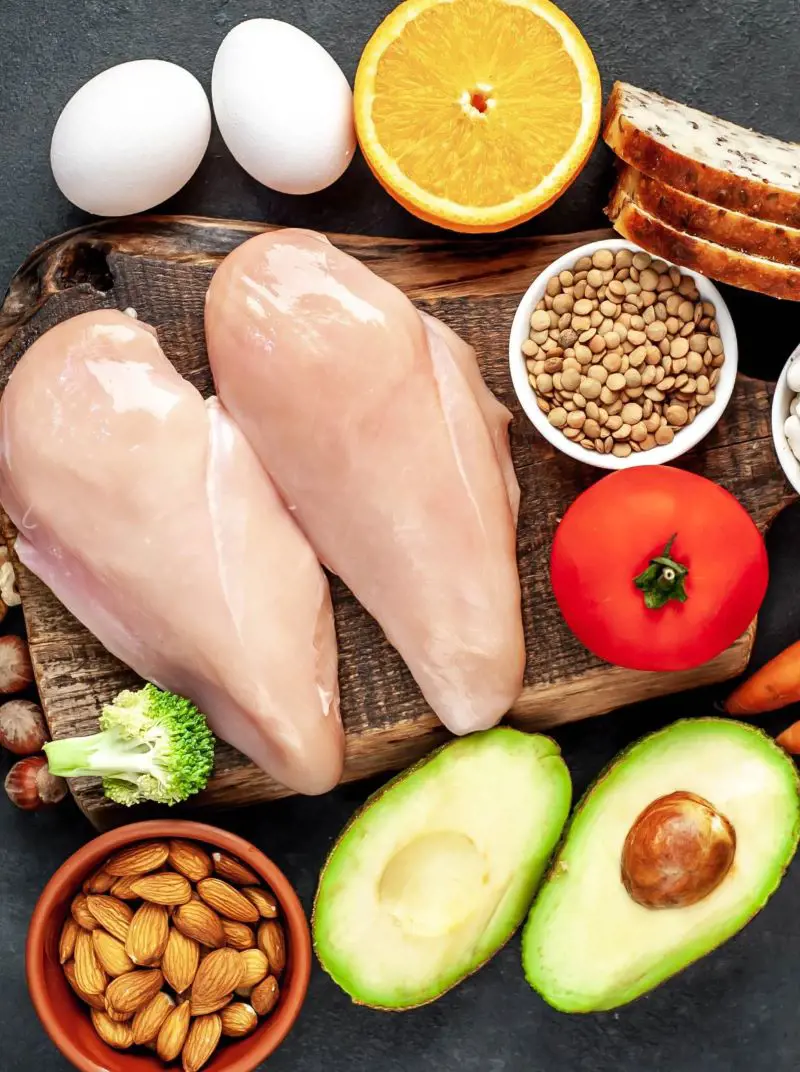
This post may contain affiliate links. If you make a purchase through links on our site, we may earn a commission.
Niacin, or vitamin B3, is a water-soluble vitamin-like all B vitamins, which is not stored in our body, so we should obtain it through a balanced diet. This nutrient helps the body break down fats, carbohydrates, and proteins into energy.
It's such a vital nutrient that it's often added to processed foods to enrich them. It supports the digestive system, nervous function, and skin and improves overall health.
1. Chicken
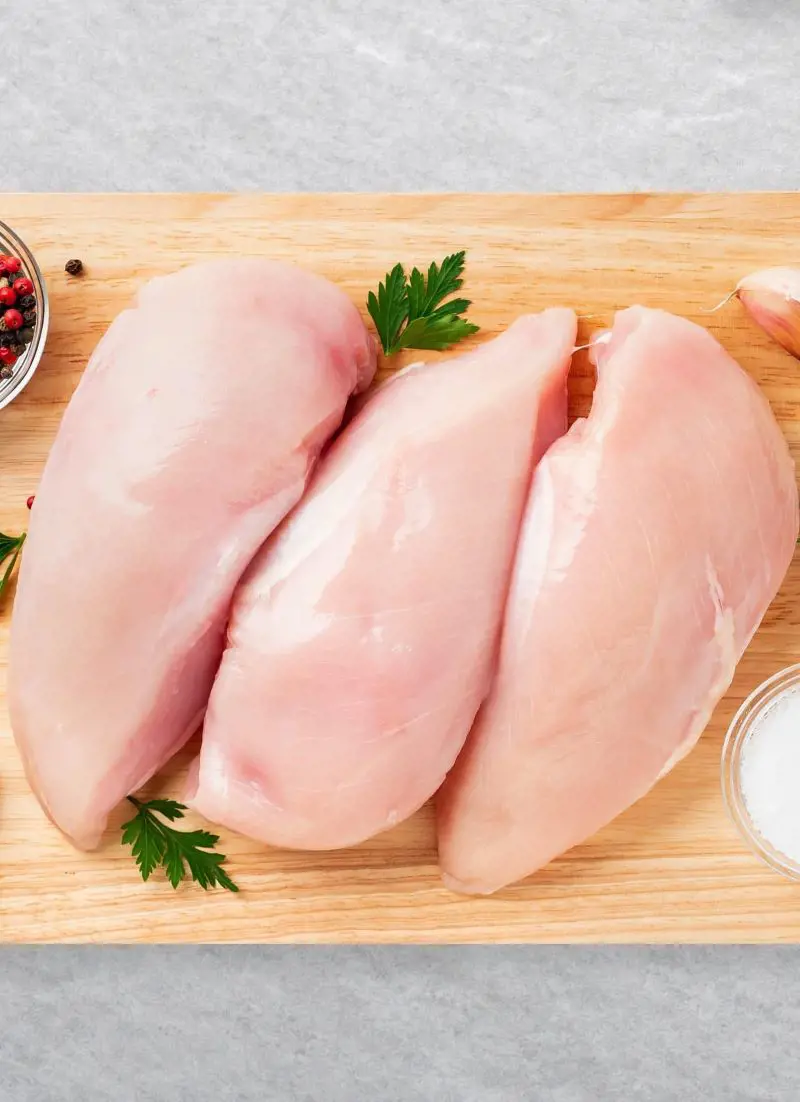
Chicken is an incredible food source of niacin. Specifically, breast meat is high in vitamin B3. Only three ounces or 85 grams of boneless, skinless, and cooked chicken breast include 11.4 mg of this vitamin, equivalent to 71% of the recommended dietary allowance (RDA) for men and 81% for women.
In comparison, the exact dose of chicken thighs includes only half of that portion. It's a beneficial addition to your meal, as it supports bone health, controls appetite, and boosts mood.
2. Liver

The liver is one of the best natural sources of niacin. A regular 3 ounces or 85 grams of cooked beef liver supplies 14.7 mg of this nutrient, or 91% of the RDA for men and 100% for women.
In addition, the liver is extremely healthy, loaded with protein, choline, iron, vitamin A, and other vitamin B. It holds good working conditions for your blood cells, decreases anemia risk, and enhances bone health.
3. Tuna
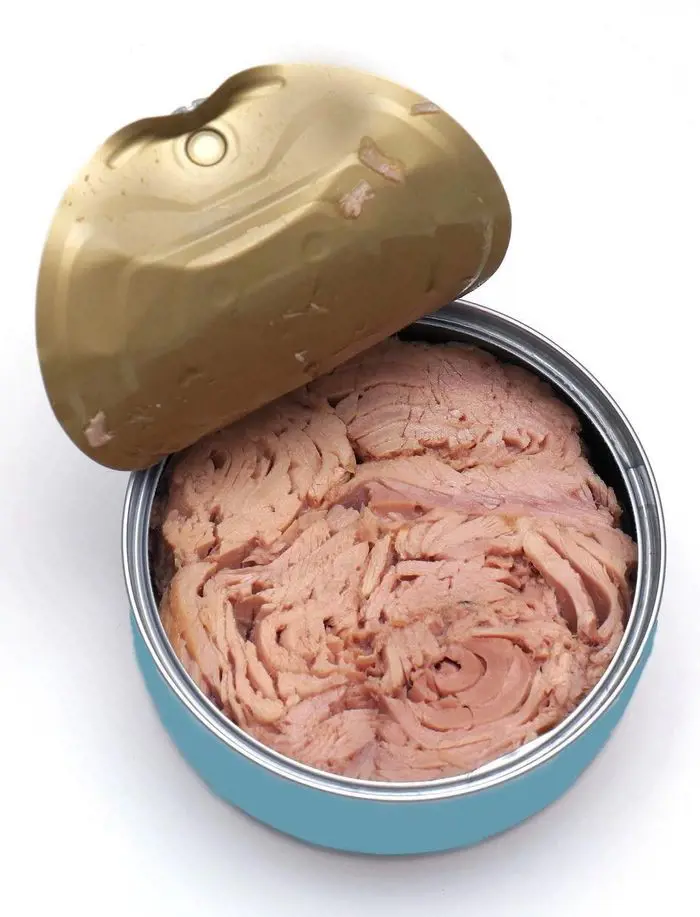
Tuna is high in niacin, as serving a 5.8-ounce or 165-gram can of light tuna delivers 21.9 mg of niacin, which implies over 100% of the required daily value, per Healthline. Also, only 3 ounces of tuna include 11.3 mg or 56% of DV.
So, it's a great choice for pescatarians. It's also high in protein, selenium, vitamin B6, B12, and omega-3 fatty acids. It helps to strengthen the immune system, healthy development of hair and nails, and aid a healthy thyroid.
4. Salmon
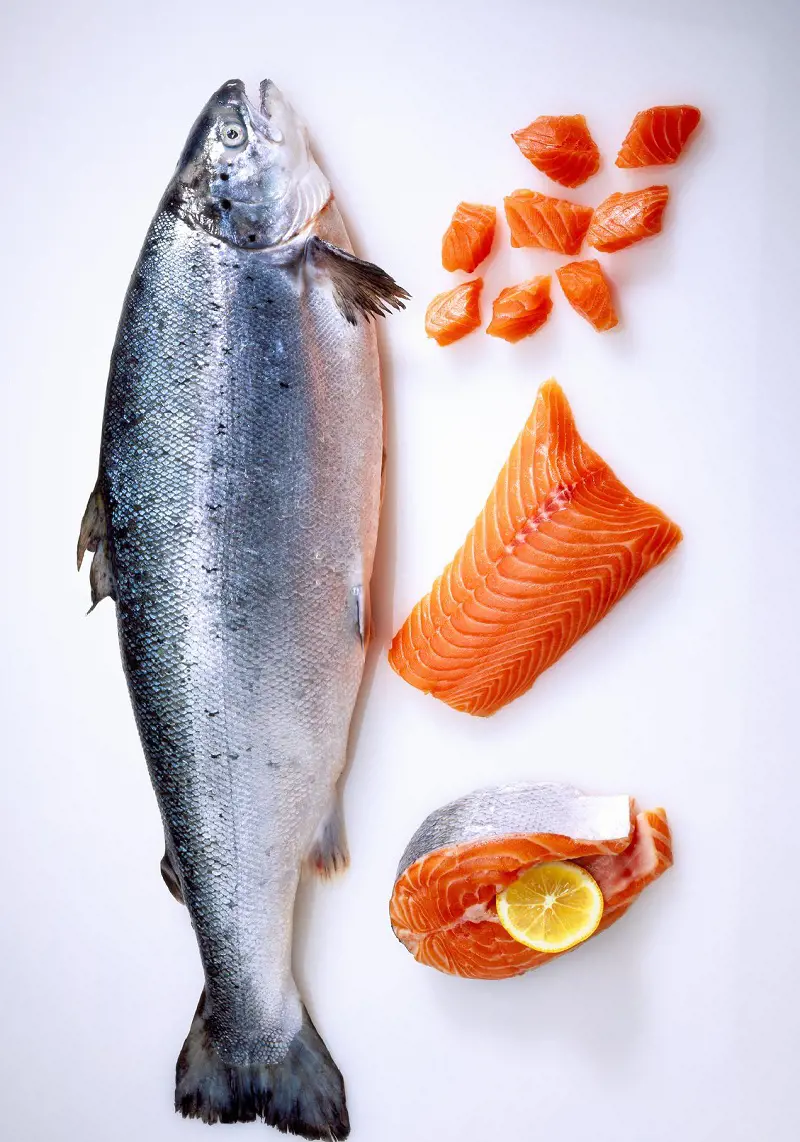
Salmon, mainly wild-caught, is a rich source of niacin. Only 3 ounces or 85 grams of salmon supplies 6.8 milligrams, which is 34% of DV, whereas the same amount of cooked wild Atlantic salmon includes 53% and 61% of the RDA for men and women, respectively.
Additionally, the same quantity of farmed Atlantic salmon retains only 42% and 49% of the RDA for men and women, respectively. Besides this, salmon is loaded with omega-3 fatty acids and another essential nutrients. It helps to lower heart disease risk as it aids in fighting inflammation.
5. Turkey

Compared to chicken, turkey supplies less niacin. However, it includes tryptophan, which turns it into niacin sources in your body. Serving cooked turkey breast three oz or 85 grams provides 6.3 mg of this vitamin and sufficient tryptophan to deliver around one more milligram of vitamin B3 or 46% to 52% of RDA.
Besides this, turkey has a high protein content, rich in vitamins and minerals. It helps to promote joint health, improve heart health, boost mental health, mood and sleep, and well-being.
6. Sardines
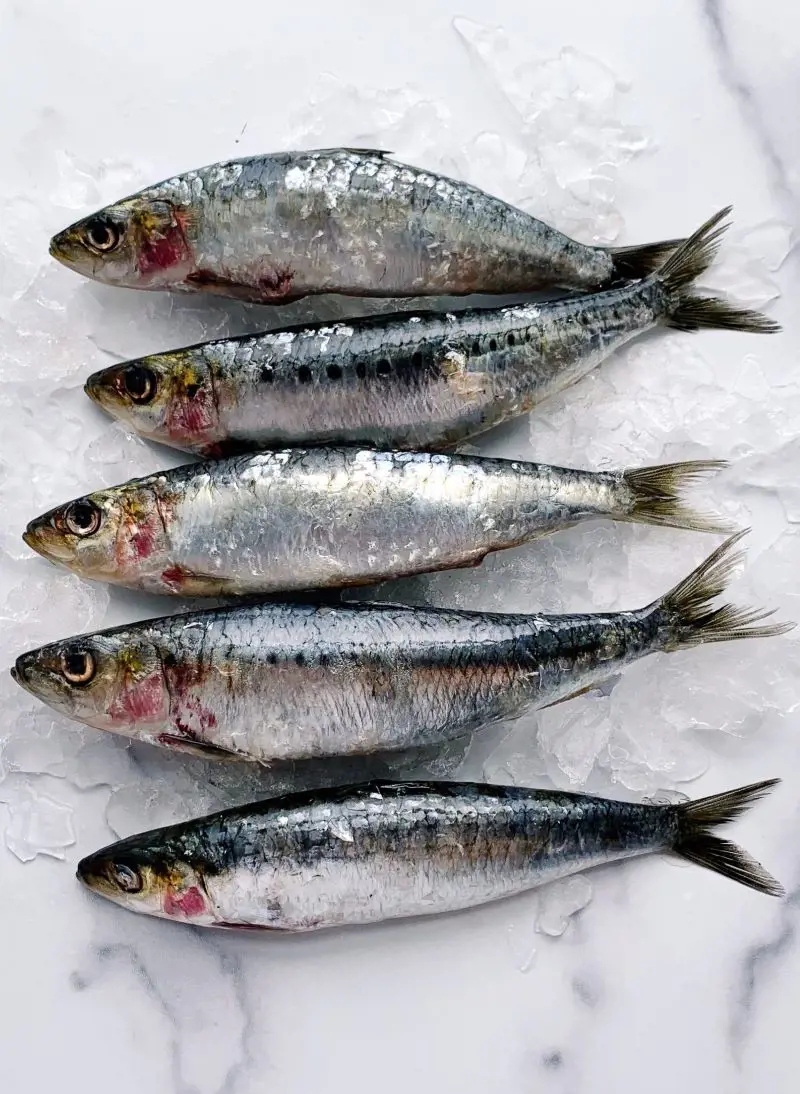
Sardines are also an excellent source of niacin. Only one can of sardines contains 4.8 milligrams or 24% DV, whereas one cup of boneless and skinless sardines filled in water provides 7.73mg of niacin, which equals 38.7% of the recommended DV.
In addition, it is a good source of protein, vitamin B12, B6, D, phosphorus and magnesium. It reduces blood pressure, enhances lipid and lipoprotein levels, and benefits heart health.
7. Peanuts
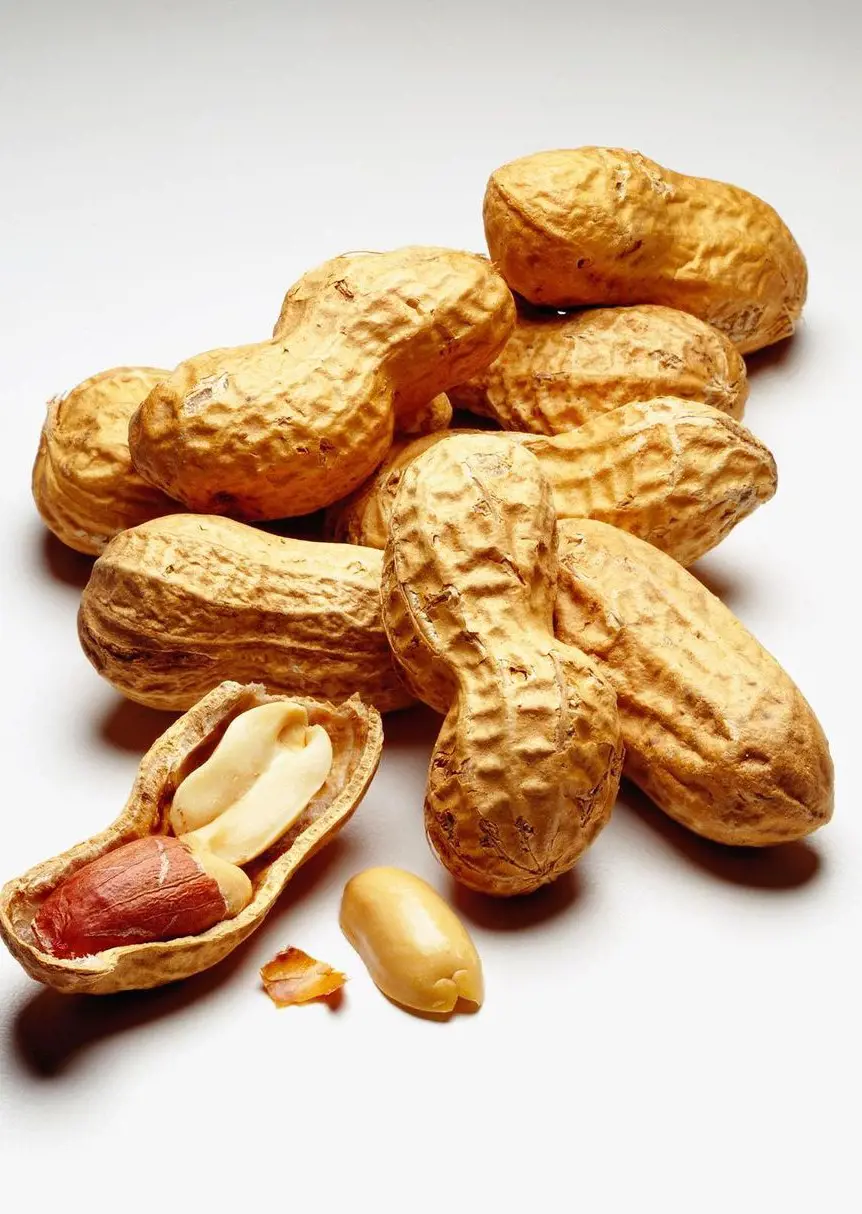
Among various nuts, peanuts are high in niacin. One ounce of peanuts supplies 3.8 milligrams, or 19% of DV, whereas two tablespoons or 32 grams of peanut butter include 4.3 mg of vitamin B3, which equals about 25% to 30% of RDA.
Also, these nuts are somewhat high in calories, protein, vitamin E, B6, phosphorous, magnesium, and monounsaturated fats. For this reason, it helps to maintain weight, lower type 2 diabetes risks, lower cholesterol levels, and prevent heart conditions.
8. Avocado

Avocados are an incredible plant-based source of niacin. One cup of cubed avocado contains 2.6 mg of niacin, i.e., 13% of DV, whereas serving one medium avocado supplies 3.5 mg of vitamin B3, or 21% of the RDA for men and 25% for women.
In addition, they are good sources of fiber, monounsaturated fats, potassium, and other vitamins and minerals. Its health advantages include reducing heart disease risk, maintaining weight, increasing brain function, and facilitating healthy digestion.
9. Sunflower Seeds
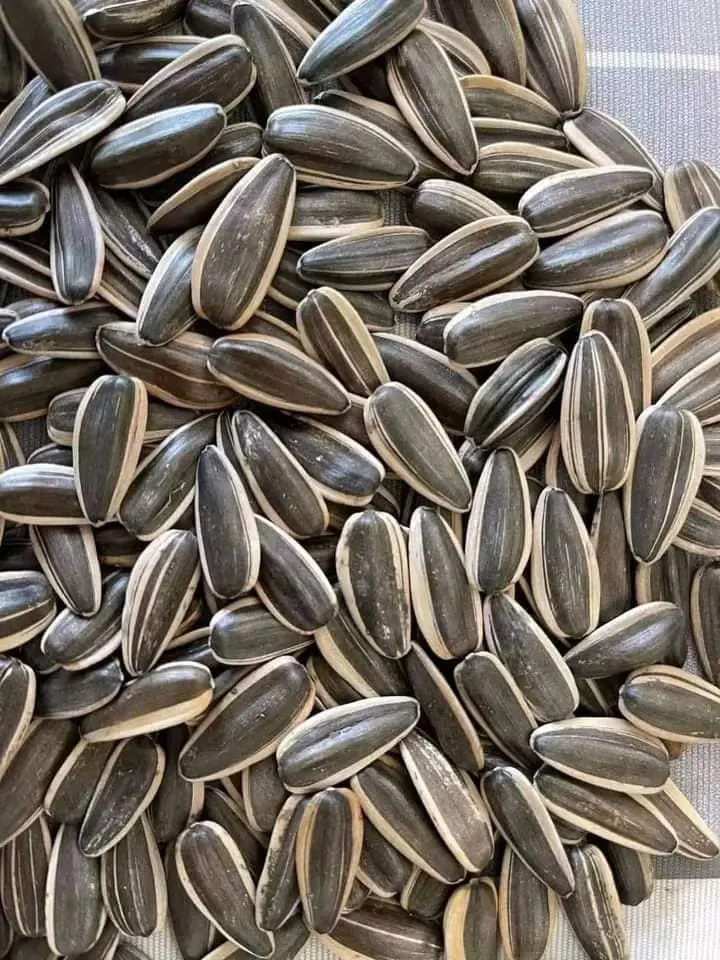
Merely one/half cup or 28 grams of sunflower seed supplies 13% of the DV for niacin, whereas one cup of this seed contains 3.8 mg of vitamin B3, which is 19% of DV. Also, it retains around 7 mg of niacin per 100 grams.
However, sunflower seed butter has slightly low niacin content, as two tablespoons (32 grams) of this butter only provide 1% of the DV for this vitamin. Niacin in sunflower seeds helps lower cholesterol levels and heart disease risks.
10. Green Peas
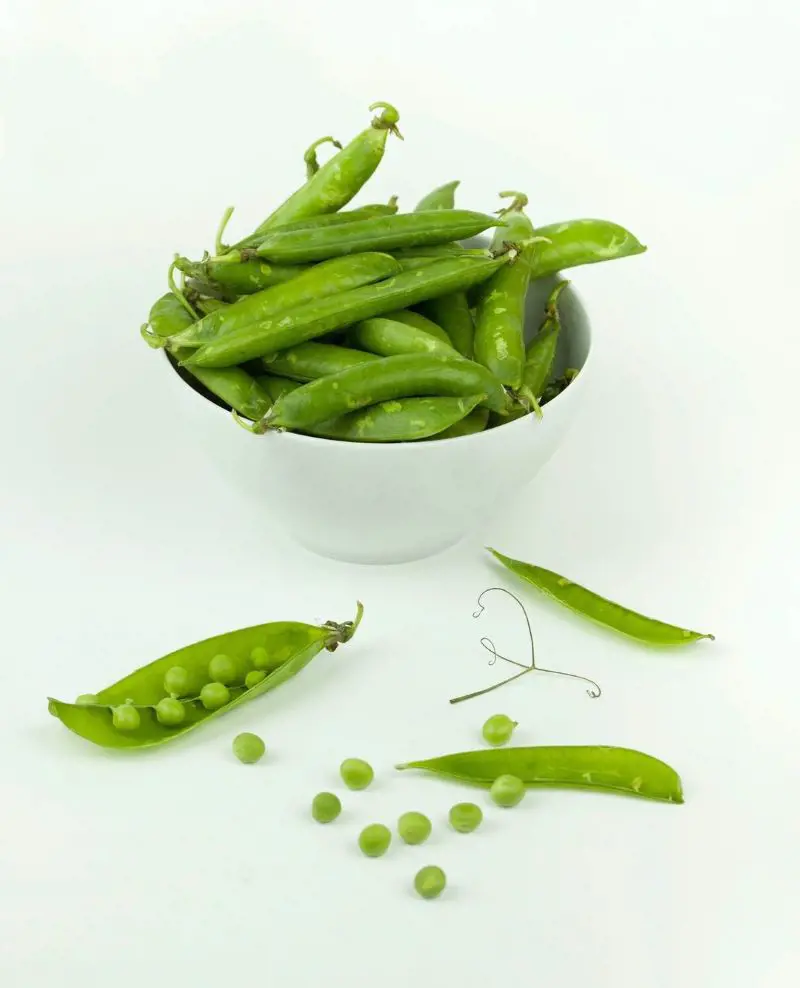
Green peas contain highly absorbable niacin. Only one cup or 145 grams of green peas packs 3.2 mg of vitamin B3, which equals about 19% of the RDA for men and 22% for women.
Peas are also good plant-based protein, antioxidants, and other essential nutrient sources. As a result, it aids in lowering cancer risk, decreasing inflammation, reducing cholesterol levels, and boosting the growth of healthy gut bacteria.
11. Brown Rice
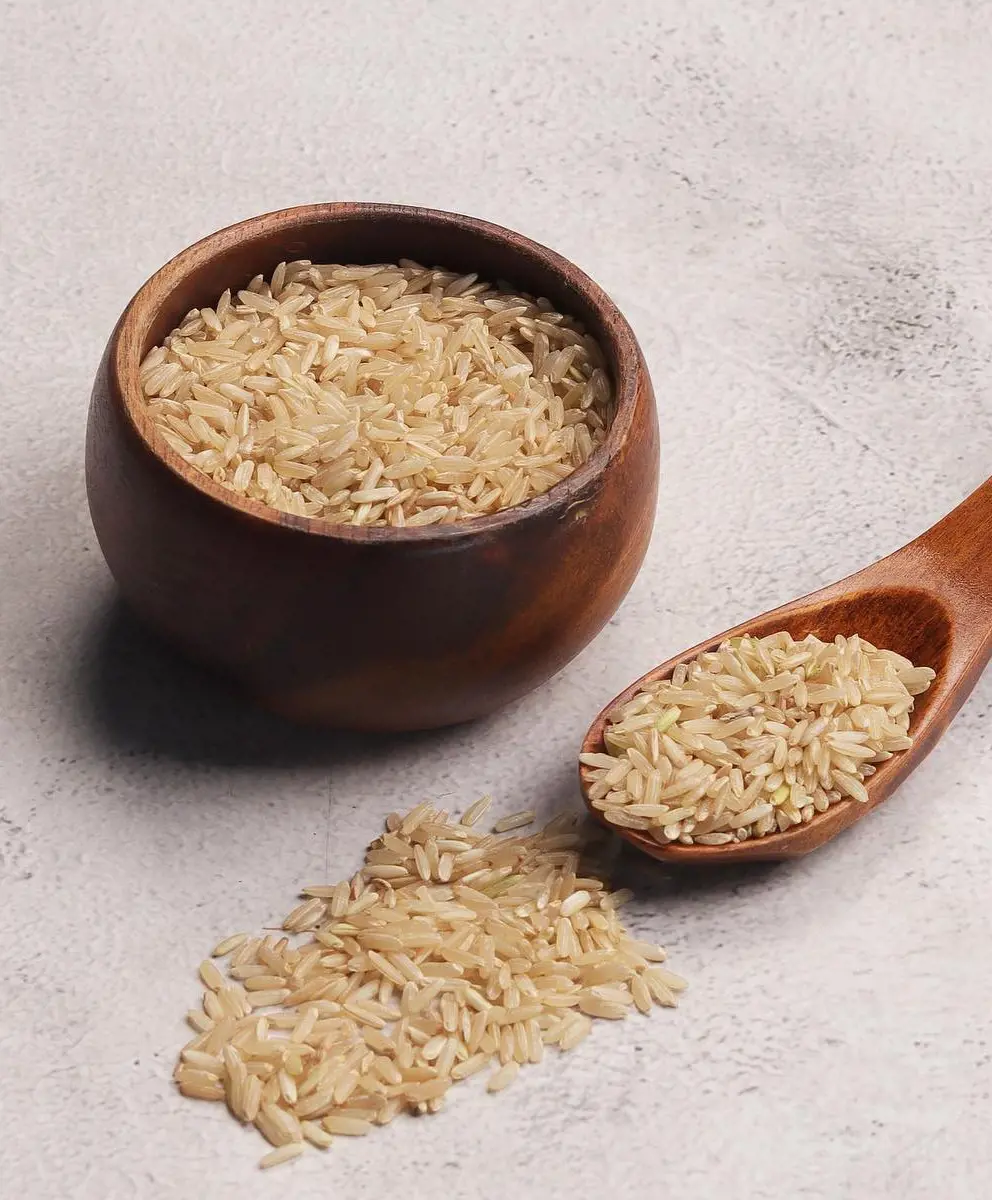
In comparison, brown rice is a less optimal source of niacin as it only observes 30% of this vitamin than other food. Just 195 grams or one cup of boiled brown rice delivers 3 mg of niacin, i.e., 18% and 21% of the RDA for men and women, respectively.
Besides vitamin B3, it's a good source of thiamine, fiber, magnesium, selenium, phosphorous, and vitamin B6. It helps lower inflammation, maintain good weight, support heart health, and prevent heart conditions and stroke risks.
12. Potatoes
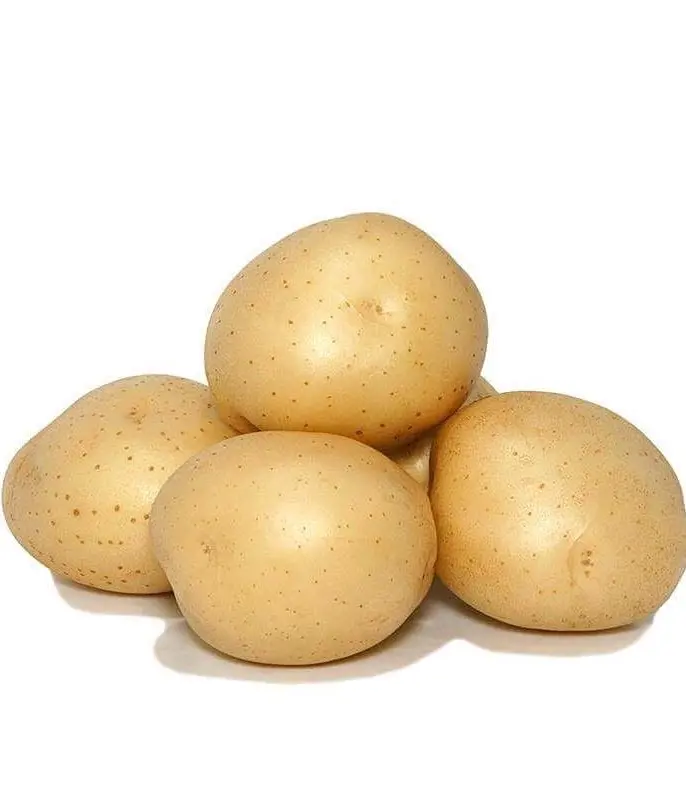
Potatoes are high in niacin, which you can also get from it's skin. Serving one large cooked potato delivers 4.2 mg of vitamin B3, i.e., about 25% to 30% of RDA. Even brown russet potatoes contain a high portion of this vitamin, as 100 grams contain 3 mg of niacin.
Besides this, sweet potatoes provide a similar dose of this vitamin as the average potato, whereas one medium sweet potato packs 1.7 mg or 8% DV of this vitamin. These potatoes are a good source of antioxidants, which aid your muscles, heart, and nervous system.
13. Whole Wheat
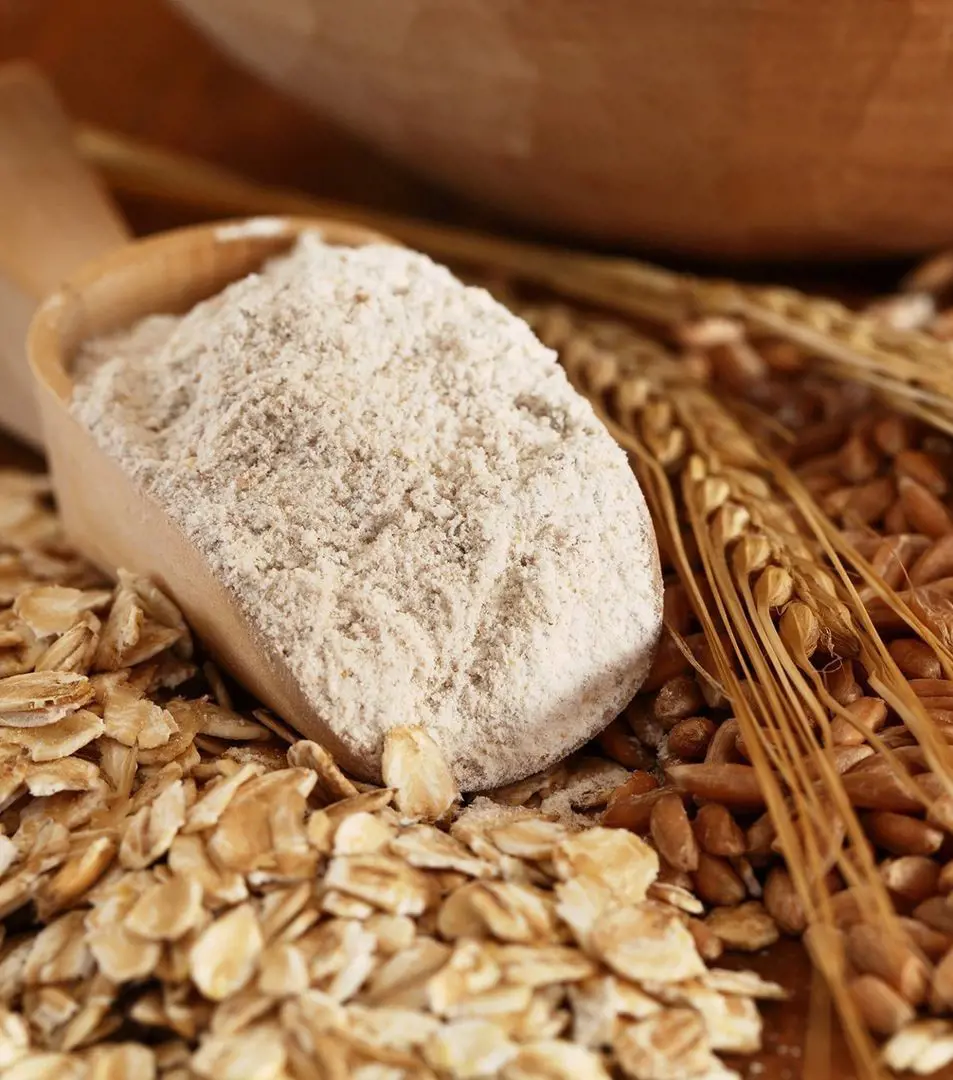
Whole wheat grain and its products, like bread and pasta, are high in niacin. The outer coating of wheat kernels is rich in vitamin B3, which is contained in whole wheat flour.
For example, only 100g of bread, whole wheat, and pita supplies 2.84 mg of niacin, equal to 14% of RDA, but the unenriched food supplies dramatically low daily value. Only 30% of this vitamin can be absorbed and digested through whole wheat products.
14. Mushrooms
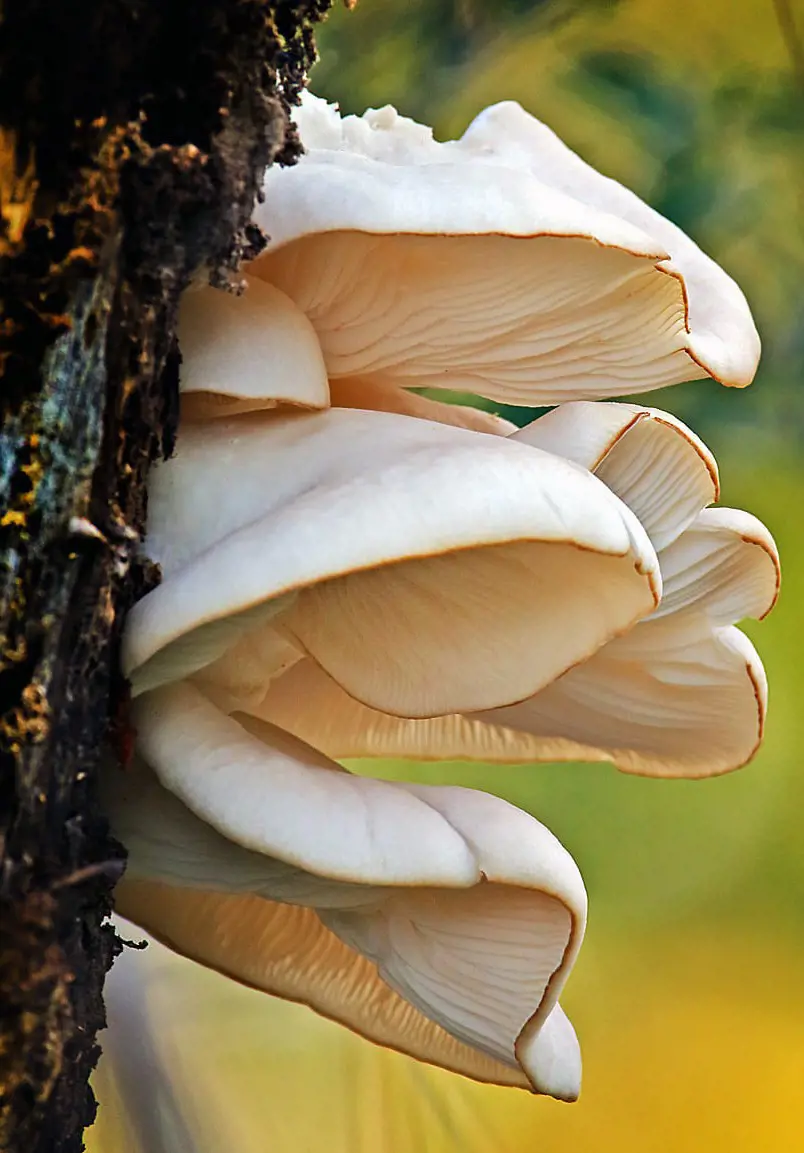
Mushroom is a natural source of niacin and the best option for vegetarians. Only one cup or 70 grams of mushrooms contain 2.5 mg of niacin, i.e., 15% to 18% of the RDA. Also, oyster mushrooms contain 4.16 mg of vitamin B3.
Except this, it is a plant-based vitamin D source. It lowers cancer risk, reduces cholesterol, guards brain health, facilitates a healthier gut, and aids the immune system.
15. Beans
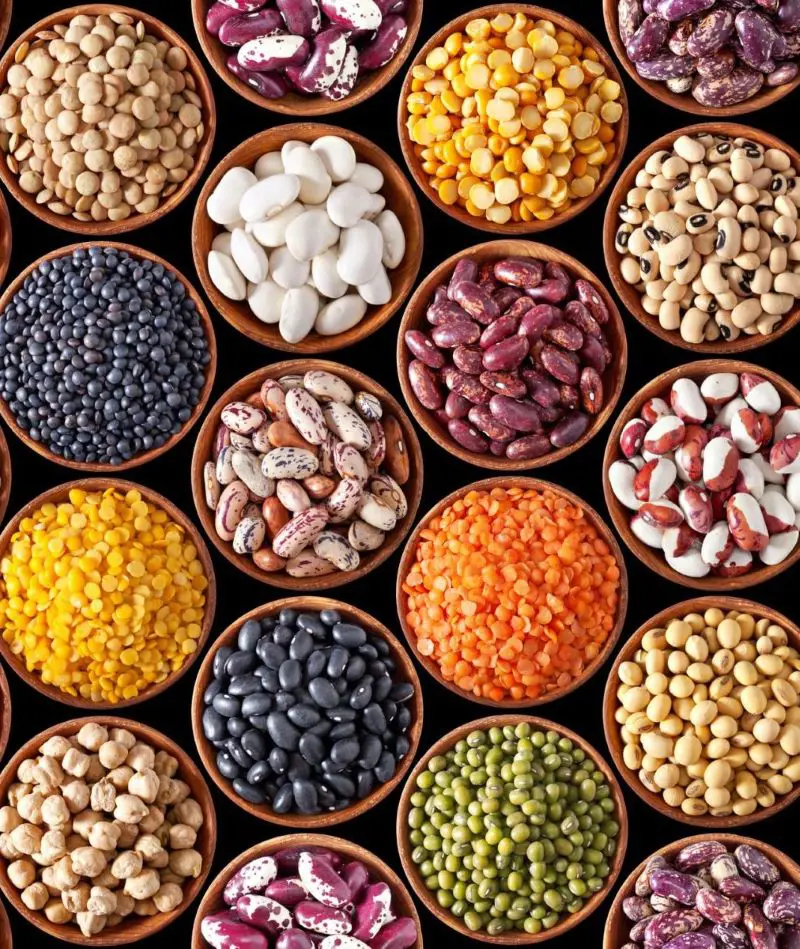
Beans like lentils, adzuki beans, and 'black' beans provide the most niacin. One cup of lentils provides 2.1 mg, adzuki beans include 1.6 mg, and 'black' beans retain 1.4 mg, equivalent to 10% DV. However, beans like pigeon peas, navy beans, kidney beans, and cranberry beans supply only 1.3 mg of vitamin B3 per cup.
As an excellent source of fiber, having beans helps to safeguard against heart disease, lowers cholesterol levels, decreases high blood pressure, and aids digestive conditions.
16. Flaxseed
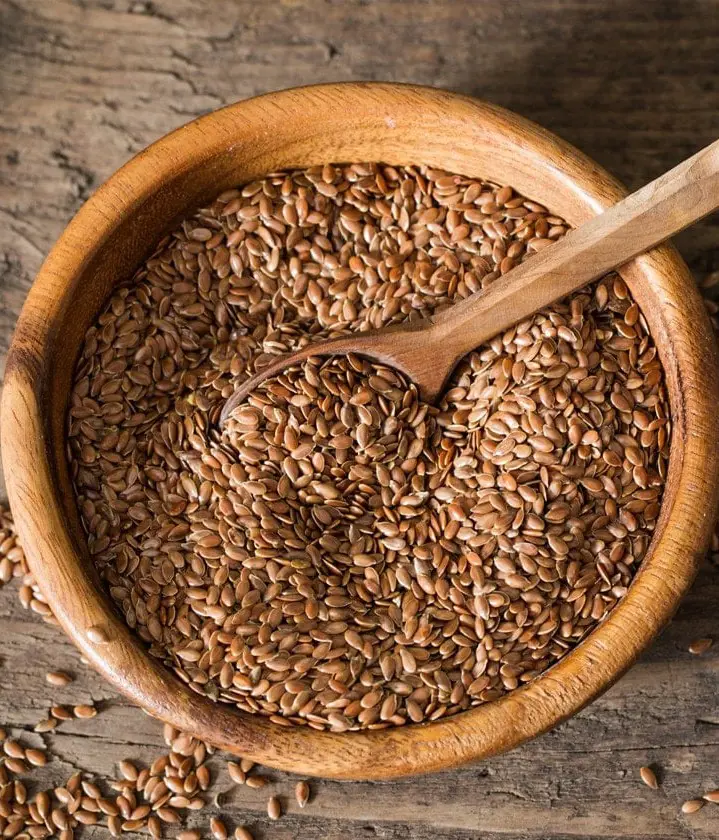
Flaxseed is an excellent vegetarian source of niacin. Among varieties of seeds, the niacin content ranges from 9.39 mg to 0 mg per 100 grams of flaxseed, equal to 15% of RDA. One cup or 168 grams of flaxseed includes 5.2 mg of this nutrient, or 32% and 37% of daily value for men and women, respectively.
In addition, it is an ideal fiber and omega-3 fatty acids source with a range of health advantages like helping weight loss, enhancing blood sugar, and supporting heart and digestive health.
17. Almonds
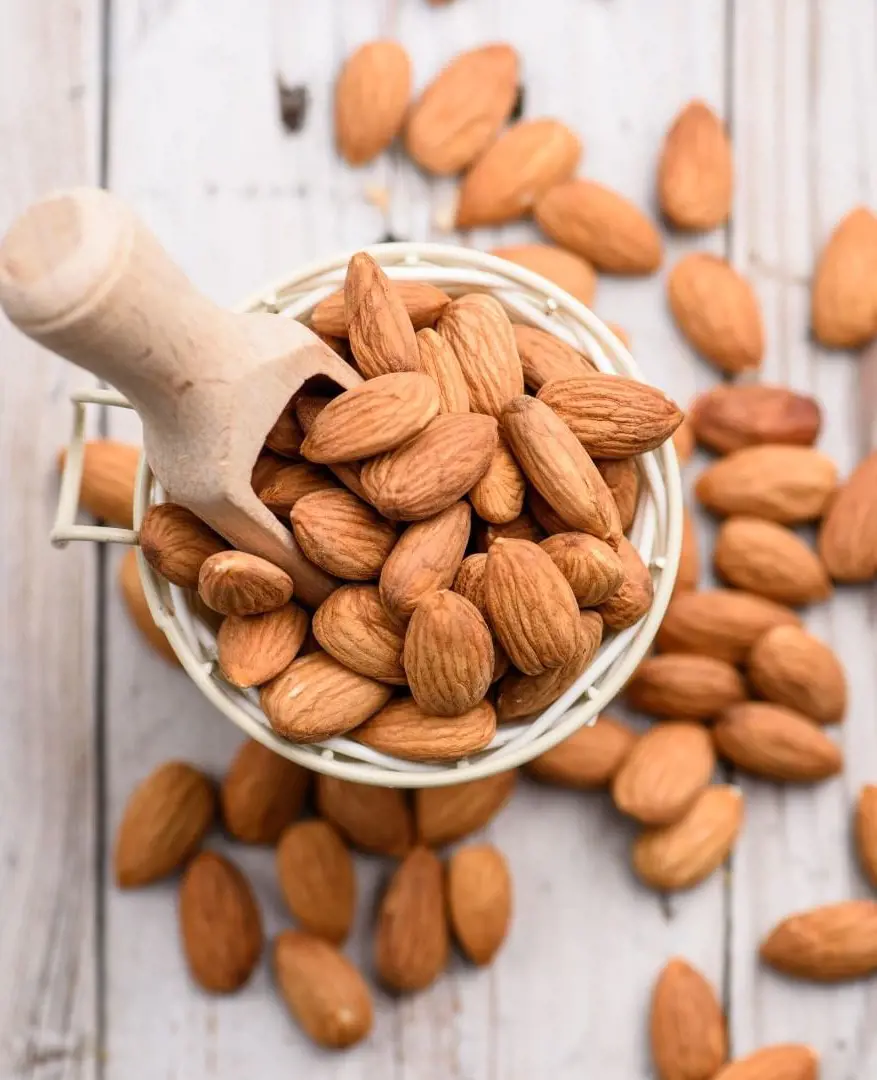
Almonds are a good source of niacin. Only one cup of almonds provides 5.2mg of niacin, which corresponds to about 37% and 32% of the DV for women and men, respectively. Also, soaked almonds contain this nutrient and other essential vitamins and minerals.
Like other nuts, almonds have several health benefits, like lower blood pressure, enhanced lipid levels, and improved blood flow.
18. Broccoli
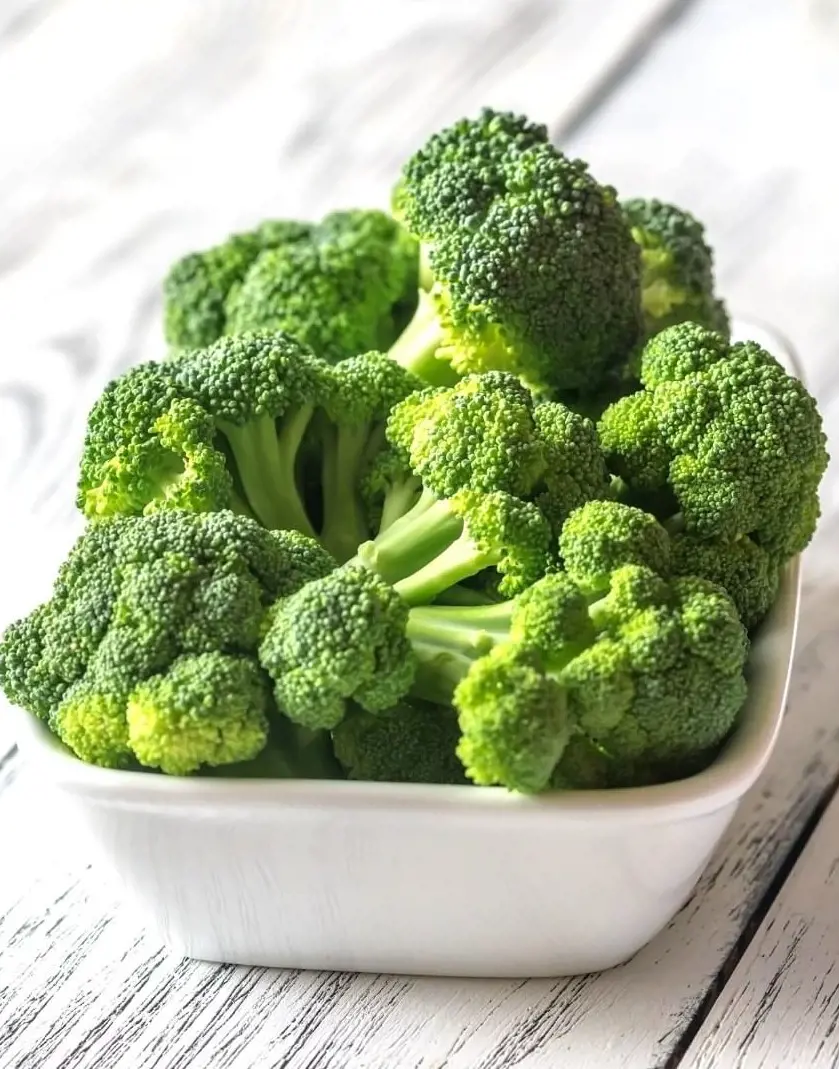
Broccoli, especially cooked broccoli rabe, is a good vegetable source of niacin, ranging from 2.02 mg to 0. 44 mg per 100 grams. Raw broccoli per 100g contains 0.64, or 3% of RDA.
Serving cooked broccoli rabe per 100g packs 2.02mg of this nutrient, or 10% of RDA, whereas the same portion of raw broccoli rabe offers 1.22 mg or 6% RDA. It is packed with fiber and other vitamins and minerals, which may help to reduce cholesterol, lower cancer risk, and control heart disease.
19. Sun-dried Tomatoes
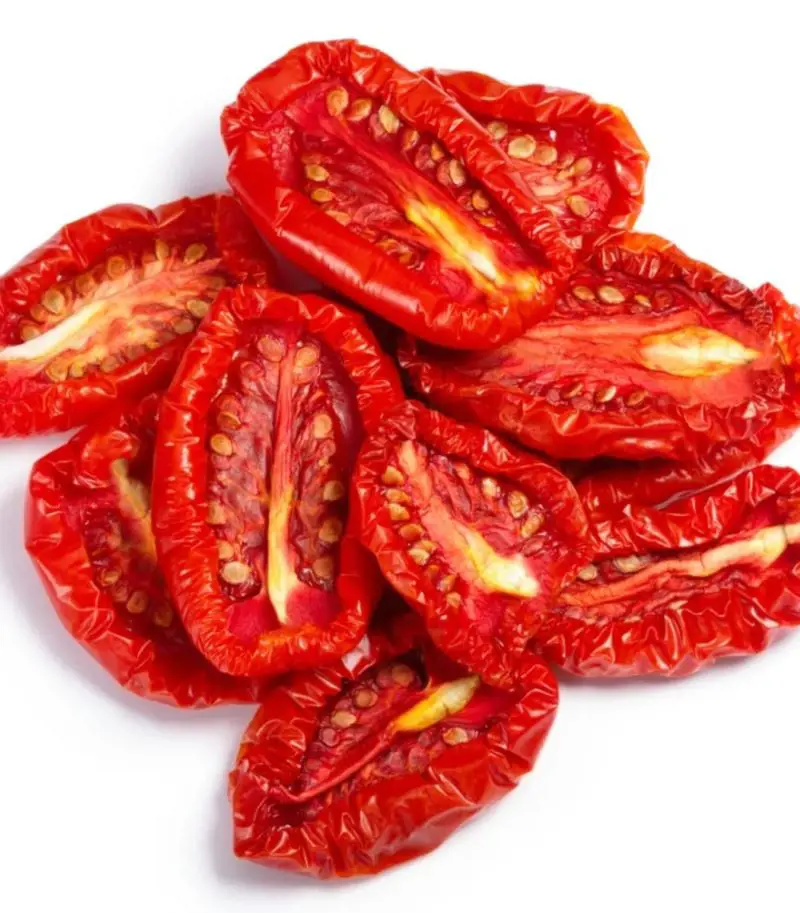
Among varieties of tomatoes, sun-dried tomatoes are foods rich in niacin. Serving one cup of sun-dried tomatoes supplies 4.9 mg of vitamin B3. Also, cherry tomatoes pack 3% of this nutrient per one-half cup.
Besides, this fruit is rich in vitamins like A, B5, B9, C, and K. Niacin present in these tomatoes helps metabolism and supports healthy brain function.
20. Fortified And Enriched Foods
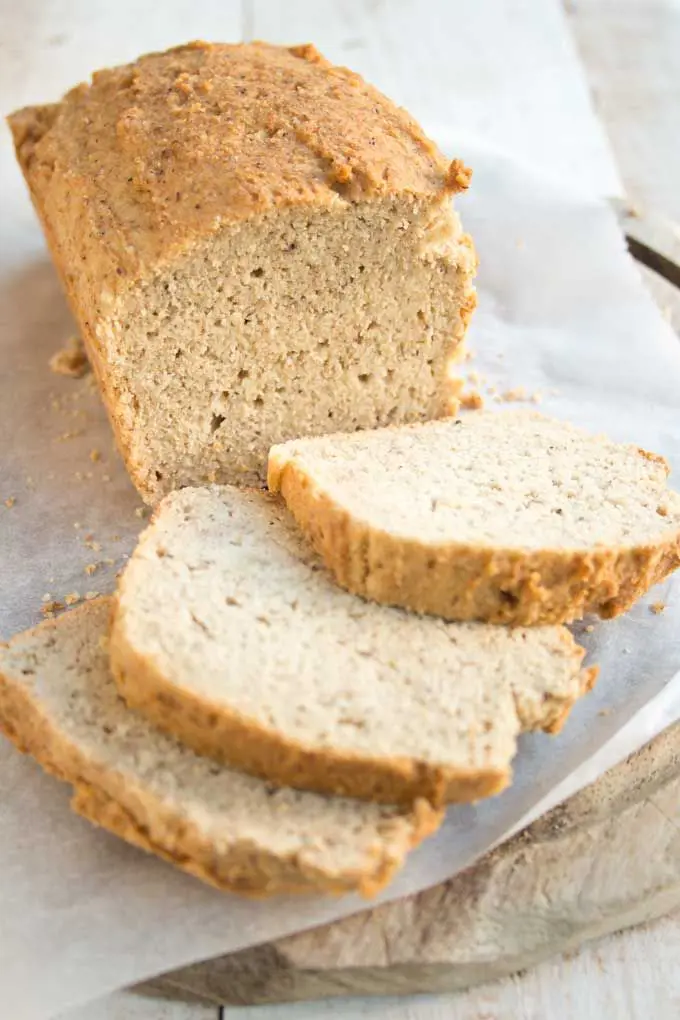
Fortified foods are high in niacin, as they are often added to processed foods to enrich them. As a result, they convert from a poor source of this vitamin to a good one. In order to enhance this nutrient content, many refined grains and cereals are fortified or enriched with vitamin B3.
Having fortified and enriched foods with niacin in your diet helps to enhance circulation and lower inflammation.
Recent posts
Nutrition
Nutrition
Is Cheese Good for Weight Loss? The Ones To Eat And Avoid
Cheese is considered an off-limit for many when it comes to losing weight. But that’s not necessarily true! Rather, cheese is a bit of a mixed bag and can actually have some benefits for weight loss when enjoyed mindfully. While you decide to i...
Nutrition
Oregano Oil Benefits and How To Use
Popular for high concentrations of active molecules like carvacrol and thymol, oregano oil has antioxidant, antifungal, and anti-inflammatory effects. Because of such attributes, it is used in culinary practices and is regarded as a beneficial addit...
Nutrition
20 Heart Healthy Foods You Must Include In Your Diet
Your heart is your body's engine that functions nonstop to maintain your vitality. It's time to give back to your heart which does so much to you. Eating proper heart-healthy food is one of the simple and effective ways to boost your heart health. Ho...
Nutrition
Hard Boiled Eggs Nutrition, Benefits And How To Eat?
Packed with vital vitamins, minerals, and protein, hard-boiled eggs are a nutritious powerhouse that gives your body endurance and vitality. They are adaptable, simple to make, and pair well with various types of healthy diets. These eggs are rich in...
Nutrition
Duck Eggs Benefits, Nutrition, And How To Eat?
Boasting better taste and texture than regular chicken eggs and significantly bigger, duck eggs are nutritional powerhouses. They contain very high protein content, fatty acids and vitamins and minerals to make them ideal for anyone who would wish to...
Nutrition
18 Fat Burning Smoothies For Weight Loss
The weight loss journey is tough if you have to get on the same path day after day, facing cravings and temptations along the way. We suggest you stop making it a monotonous struggle and make it a flavorful adventure instead. One of the easiest and m...

